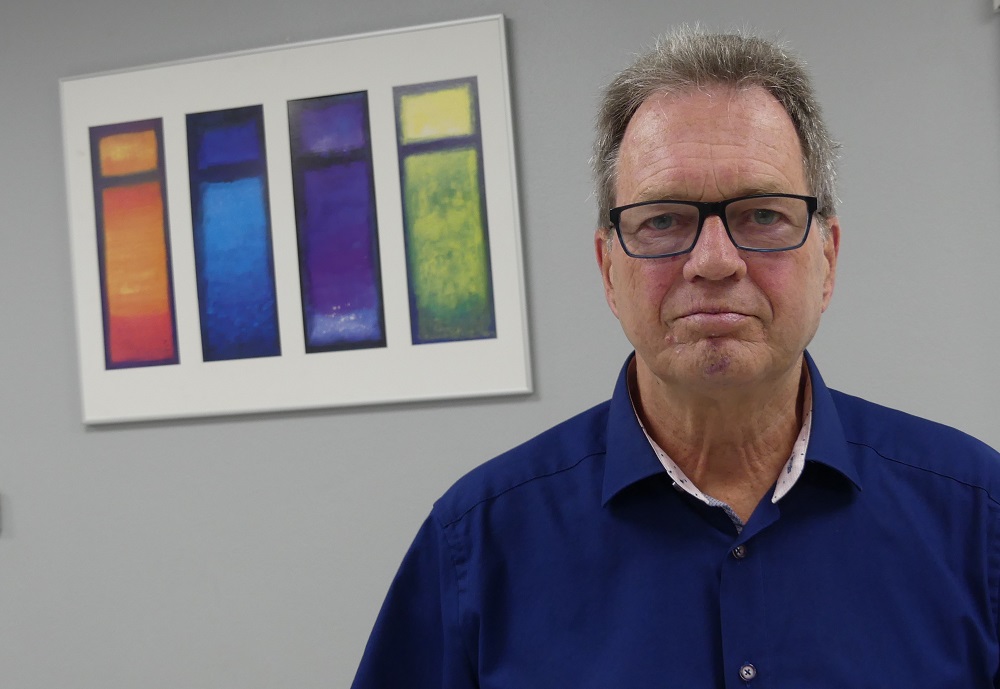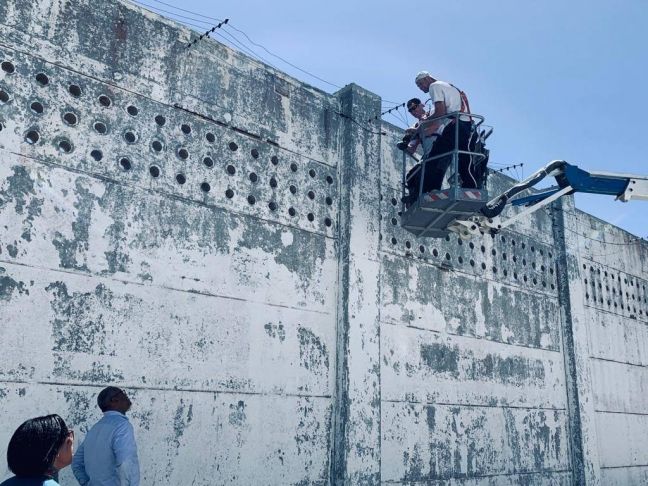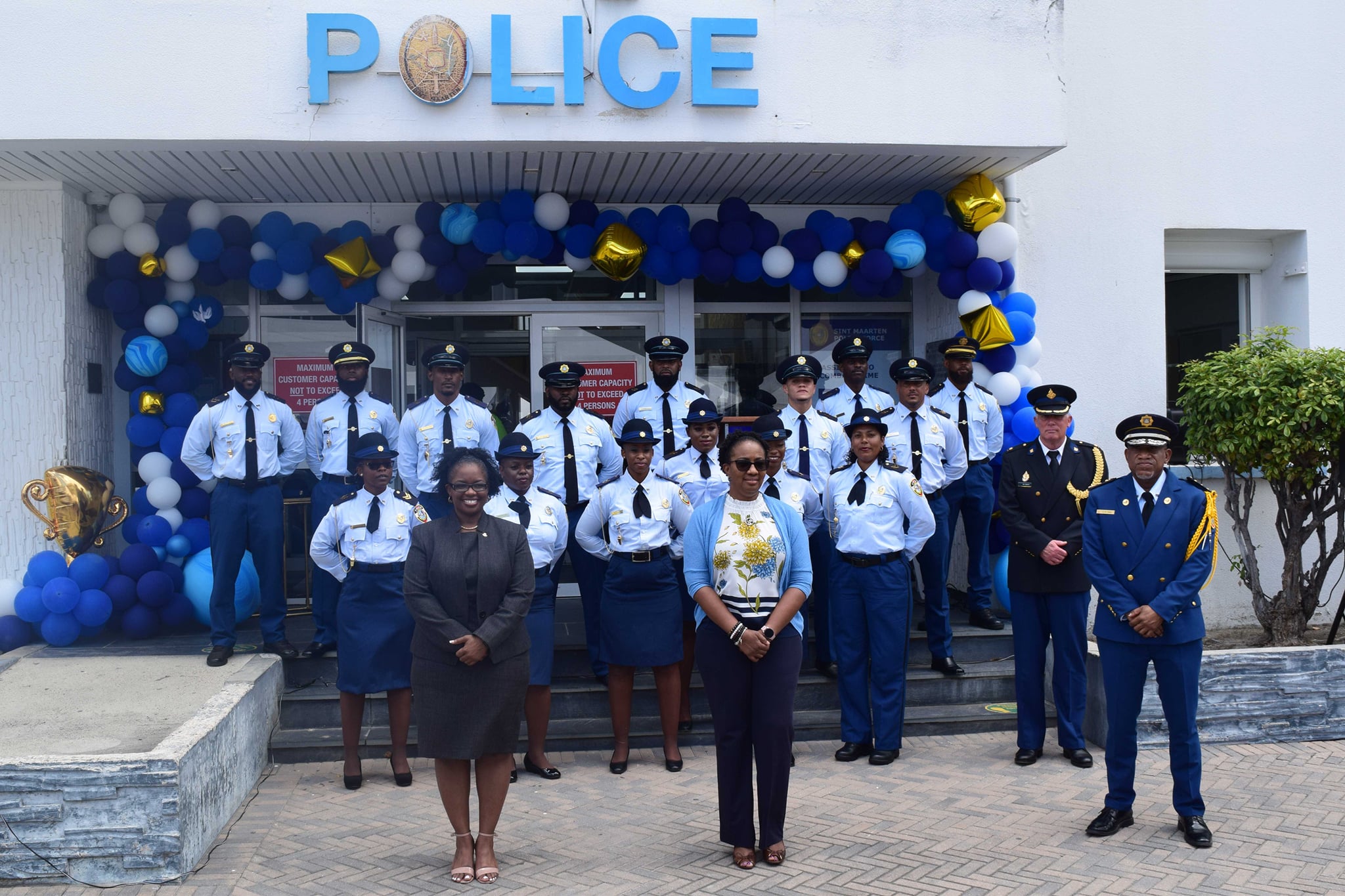Progress Committee chairman Nico Schoof: “It is going very slowly, but there is some progress”

PHILIPSBURG — “The preparedness of St. Maarten to do something with the recommendations of the Progress Committee depends since 2010 heavily on the minister of justice and the government that is in office,” says Progress Committee chairman Nico Schoof.
“There have been long periods when nothing happened, not from the side of St. Maarten and not from the side of the Netherlands. Sometimes it was minimal. The current minister of justice is busy with the committee’s recommendations. Recently she decided to start a fifth class of cadets who will become police officers two years from now.”
The Progress Committee was established in 2010 when St. Maarten became an autonomous country in the Kingdom of the Netherlands. In consultation with the Kingdom, St. Maarten put five plans of approach in place for country-tasks that still needed further development. The Progress Committee’s task was (and is) to monitor the progress of these plans and to report about them on a quarterly basis. The plans of approach for the National Detectives Agency, the New Admission Organization and the Census Office have been completed and no longer require monitoring.
Two other plans, for the police and the prison, are still far from completed and the fortieth progress report is about to be published. Is there any progress?
Schoof: “It is going very slowly, but there is some progress. The mutual agreement cooperation plans of approach dates back to 2010. The relevant general measures were initially put in place for two years while it was at the time already clear that these plans could not be completed in two years. The general measure has been extended several times by two years.”

Currently, the main concerns are about the situation at the heavily understaffed police force and at the Pointe Blanche prison. “The plans of approach for these entities have not been completed yet; far from it. The police force has expanded during the past ten years, but not to the minimum it ought to have.”
Together with the police forces of other countries training programs have been put in place, often with external funding, so these programs don’t cost St. Maarten a penny. “Material like cars are in order,” Schoof says. “But there are no buildings for classrooms, there are only shooting exercises in the open air, there are not enough of them and they are not good enough. Our point is that there must be a building or buildings for training purposes and shooting practice. The Chief Commissioner and his management team play an important and positive role. Within the limited possibilities, they do what they can.”
The Pointe Blanche prison has been a major headache for more than a decade. After 2010 the facility was slowly renovated with funding from Usona (foundation for the development of the (former) Netherlands Antilles). “In 2017 that project was almost completed and then Hurricane Irma destroyed everything,” Schoof says. “Afterwards, St. Maarten has patched up the building a bit, while waiting for structural improvements.”
But the building is not the only problem: “In terms of staffing absolutely nothing has improved since 2010. There is a shortage of staff, staff management is bad and absence due to sickness is high. The current management is doing what is possible within the limitations it is facing, but it cannot tackle this problem on its own, because staff management is spread over several ministries, a policy to address absence due to sickness is lacking or not executed, and management has insufficient authorities. The prison’s capacity is seriously inadequate since the court ruled that not three but just two inmates are allowed to be in one cell.”
There is however one piece of good news: “It is positive that there is again a form of youth detention in the Miss Lalie Center.”
Other positive developments are the recruitment by the Netherlands and St. Maarten of a program manager for the strengthening of the detention system and the vacancy the ministry of justice published for a new prison director.
One may well wonder why St. Maarten has not done much with the countless recommendations the Progress Committee has produced over the past ten years. Is this due to unwillingness?
Schoof: “The preparedness to do something with our recommendations depends heavily on the minister of justice and the government that is in office. There have been long periods when nothing happened, not from the side of St. Maarten and not from the side of the Netherlands either. At times it was minimal. The current minister of justice is busy with our recommendations.”

The Progress Committee has an advisory function, so it cannot enforce its recommendations. Schoof: “The Committee advises the Ministerial Consultation, consisting of the Prime Minister of St. Maarten and the Minister of Home Affairs and Kingdom Relations (currently the State Secretary of Kingdom Relations). This Consultation can take decisions that somebody has to do something. But in practice, that does not happen.”
While progress is slow and the problems at the police force and the prison are far from resolved, the Progress Committee’s contacts with its partners in St. Maarten are good. “The atmosphere during our meetings is always positive and benevolent,” says Schoof. “This is especially the case during our meetings with civil servants, but also on the political level. The Committee is continuously making efforts towards a good working relationship, based on the thought that only then is there an opportunity to realize the plans. Nevertheless, until now the results are insufficient. There is a lack of money, know-how, structure and – in the past – often of political ambition.”
Is there any perspective at all for the police force and the prison?
Schoof: “For the prison that perspective is that there is €30 million ($36.6 million) available through the country package for the detention system. A large part of that money will become available for a new prison. The intention is to use UNOPS (United Nations Office of Project Services). That organization focuses on the realization of projects and it is familiar with the detention system. Hopefully, the contract will be granted shortly under the shared responsibility of St. Maarten and the Netherlands.”
How threatening is the staffing shortage at the police force for St. Maarten? That is not a question for the Progress Committee, Schoof says. “The public prosecutor’s office and the police force have sounded the alarm on several occasions. The Progress Committee does not have its own opinion. Our task is to monitor the progress of the plans of approach. They have been defined in terms of people and resource, not in terms of outcome.”
The fortieth Progress Committee-report will become public after it has been submitted to the Dutch Second Chamber.























